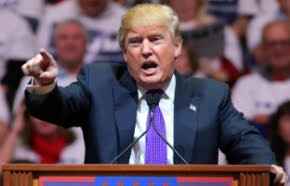Jesus trumps tribalism
American electoral politics is deeply tribal, and Donald Trump’s success in the presidential primaries represents tribalism pushed to a frightening extreme. His supporters seem unfazed by his rhetoric, with its toxic stew of hubris, vulgarity, personal insults, and patent lies. They don’t mind his lack of relevant experience, or the stream of evidence that he hasn’t thought much about public policy and doesn’t really care. His talents lie elsewhere: as a media-savvy demagogue who stands boldly against those who are outside the white conservative tribe, even if he doesn’t really stand for anything at all.
Yet this election cycle has also shown the limits of tribal politics on the right. While many Trump supporters identify themselves as evangelical Christians, most evangelical leaders are not buying what Trump is selling. A steady parade of pastors and other evangelical figures has denounced Trump in no uncertain terms. Some have gone out on the ultimate limb in a partisan nation: declaring that even if Trump wins the nomination, they won’t vote for him in November. They’d rather be governed by a liberal than an unprincipled bully.
We appreciate these evangelical leaders’ efforts on behalf of their faith—and ours. Whatever differences mainline Christians may have with evangelicals in matters of theology or politics, we share in the task of Christian formation. Mainline church leaders too are trying to make disciples of Jesus, not members of a cultural tribe.






